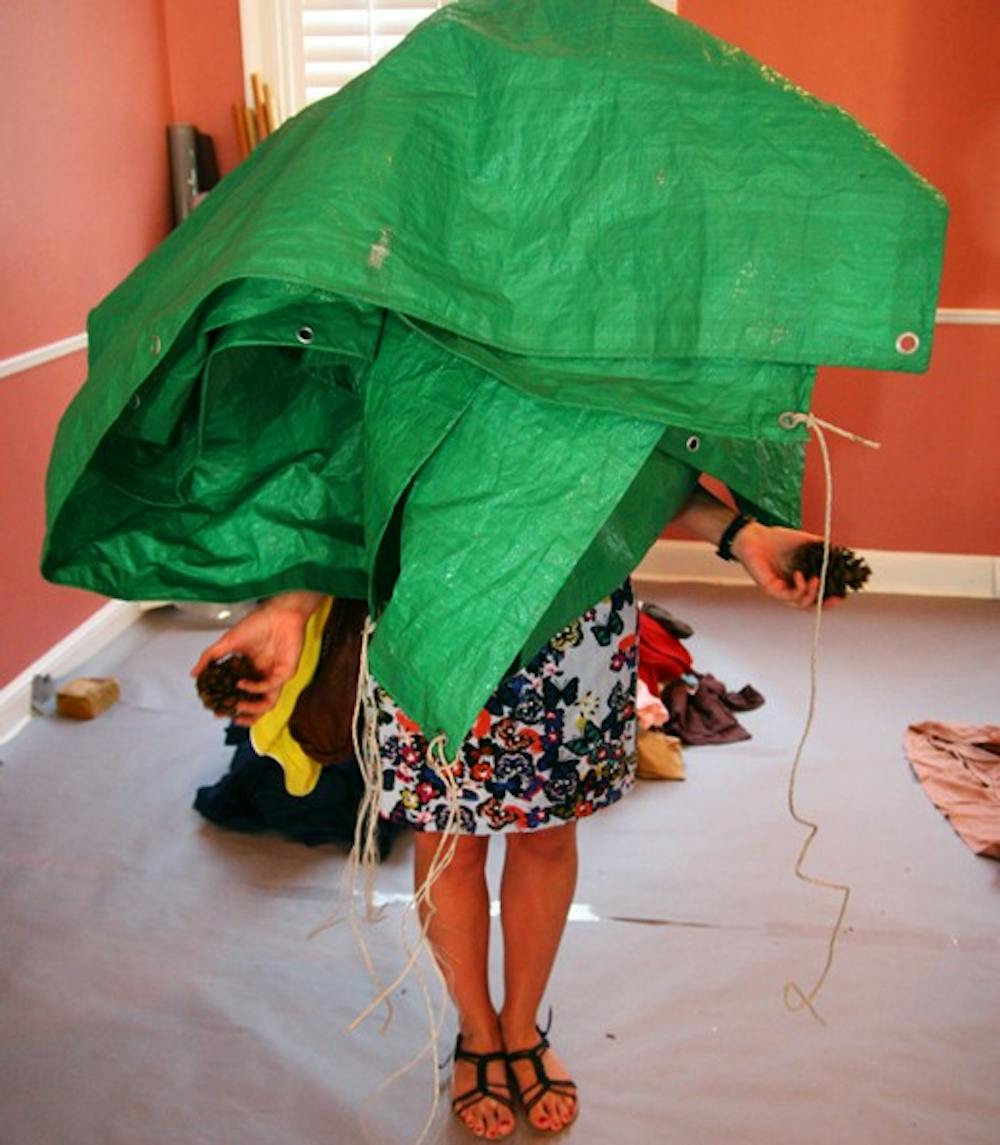Pipe cleaners, streamers, boxes, paint and imagination created endless possibilities for tasks Saturday night.
More than 300 people participated in artist-in-residence Oliver Herring’s TASK, an interactive art performance, on Saturday night in Gerrard Hall. The event lasted for six hours, but participants could come and go.
A DJ spun techno music as participants completed chaotic and random tasks.
Students, children and community members submitted and performed tasks such as crowd surfing, doing the Hokey Pokey and untangling a 37-person human knot.
After they completed a task, they would write a new task, add it to the collection and draw another.
“I love that it’s so interactive and how it’s such an experiment in how humans interact with each other,” senior Laura Ritchie said.
While the turnout was strong, Herring said he was not concerned with numbers and that his events can never succeed or fail.
“It’s seems to me like they’re having a hell of a good time. And based on that, I would say it was very successful,” he said.
Herring said he doesn’t participate in TASK events to avoid interfering with the experience. Instead, he follows and films participants throughout the event.
“It’s not really about me. There’s nothing I get out of it but the experience. It’s really your event, the students’ event, whoever participates. If they get something out of it then that’s all that matters, really,” he said.
Herring, the original developer of TASK events, said they now take place without his knowledge all over the country.
“I love it. I think it really is fantastic. It’s a tool accessible to anybody,” he said.
Most of the materials were donated by the Scrap Exchange, an arts center in Durham that uses recycled and repurposed materials to create art.
Cary Levine, assistant professor of contemporary art history, worked with Herring to construct the event.
“You can see how materials are used in one thing and then get reused and reprocessed within the event itself to be many different things during the course of the six hours,” Levine said.
He said he was pleased with the process-oriented experiment.
“It’s more about the experience, about being here, being creative, being spontaneous and improvisational rather than a finished work of art,” Levine said.
Contact the Arts Editorat artsdesk@unc.edu.




